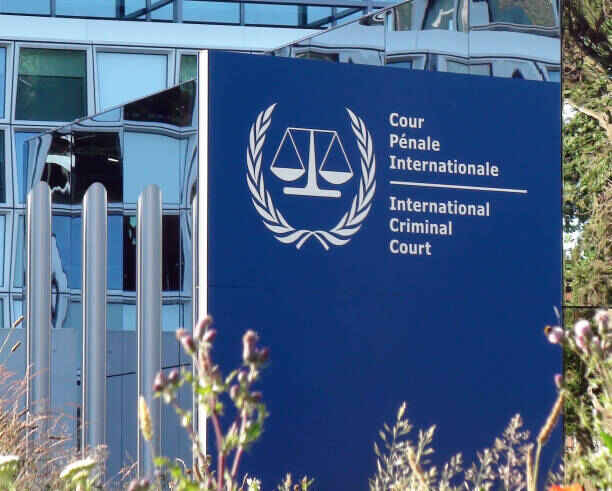
Following a UN General Assembly resolution voted in 2022, the International Court of Justice (ICJ) is currently holding hearings on the legal consequences of Israel’s policies and practices in what is referred to as “occupied Palestinian territory”. The ICJ is expected to provide a non-binding assessment on how Israeli policies, such as Jewish settlement and annexation in the West Bank and East Jerusalem, impact the legal status of the occupation and its global consequences. Notably, this case is separate from South Africa’s January submission under the Genocide convention.
The Palestinian foreign minister, Riyad al-Maliki, accused Israel of engaging in “colonialism and apartheid” in the Palestinian lands occupied since 1967. Al-Maliki emphasized the denial of the Palestinian people’s right to self-determination for over a century, highlighted the adoption of discriminatory legislation and measures and challenged the portrayal of Palestine as a wasteland. Al-Maliki also presented five maps illustrating the significant reduction of Palestinian territory over the years. The final map he referred to, shown by Israeli Prime Minister Benjamin Netanyahu, depicted an Israel-only landscape, indicating, according to al-Maliki, the intended outcome of the prolonged Israeli occupation, that is, the disappearance of Palestine. Supporting the Palestinian case, the Anglo-French lawyer Philippe Sands asserted that the court’s ruling would clarify international community obligations. This is so for, were the court to find that Israel has violated Palestinians’ right to self-determination, UN member states would be required to bring Israel’s occupation to an immediate end.
Israel, from its part, denies the accusations of colonisation and apartheid and warned the UN against delivering a judgment for, it argued, it would hinder the ongoing negotiations aimed at putting an end to the conflict. It further argued that the hearings were actually aimed at undermining Israel right to defend itself against vital threats. Thus, unsurprisingly, Israel decided to not participate to the hearings; nonetheless, it did submit a written argument denying the accusations, especially stressing that the Gaza Strip has not been occupied by Israel since 2005, when control was ceded. This, as a matter of fact is true, however, as many human rights groups rightly stress, Israel has maintained control of the territory in other ways. Specifically, through a blockade, imposed after Hamas was elected in 2007. Similarly, the settlements in the West Bank, in which about 700,000 Israeli live, are considered illegal by the international community.
The accusation of apartheid, vehemently rejected by Israel, is even harder to deny. The term “apartheid”, according to the Rome Statue of the International Criminal Court, refers to an institutionalised regime of systematic oppression and domination, which amounts to a crime against humanity. Many reports by human rights groups, including Amnesty International and Human Rights Watch, stressed in past years the territorial fragmentation, segregation, dispossession and consistent denial of economic and social rights imposed by Israel on Palestinians, which were argued to amount to apartheid. Even the US has considered it appropriate to sanction Israeli settlers in the West Bank, accused of attacks against Palestinians, who have faced increased levels of violence since Hamas’ attacks last October. On this same grounds, many of the countries that have already spoken at the hearings echoed the charges of apartheid presented by Palestine; these include South Africa, Saudi Arabia and Bangladesh.
Notwithstanding the sanctions imposed, the US represented a voice outside the chorus at the hearings. It backed Israel’s argument that an assessment by the ICJ on the matter of occupation of Palestinian territories would be counterproductive to the wider aim of achieving a long-lasting peace. It also stressed that the hypothetical call for Israel to leave Palestinian territories immediately does not account for the serious security threats that Israel faces. Therefore, although the US is reportedly growing impatient with Israel’s military action, it remains its main ally.
Notably, the ICJ proceedings would only lead to a non-binding assessment which would most likely take months; it would then be up to the UN General Assembly to decide whether to act upon it or not. Thus, once again the ICJ is called upon to make a statement primarily for its potential political impact. As with the charges of genocide it heard last month, the ICJ could sway support away from Israel, which in turn could persuade it to halt military action in Gaza. With regards to the case brought by South Africa under the Genocide Convention, the ICJ was terribly timid in its assessment, limited to restating Israel’s responsibility to avoid genocide. Arguably, a finding of genocide, or better potential genocide, presented challenges much greater than the finding of Israel’s de facto occupation of Palestinian territories and the segregation and discrimination Palestinians have been subjected to. In fact, the UN itself has referred to the territories in question as “occupied territories” since 1967. Therefore, we could legitimately expect the ICJ to take much more decisive action than it did in the previous case. Especially now that Western support for Israel is cracking.
By The European Institute for International Law and International Relations















